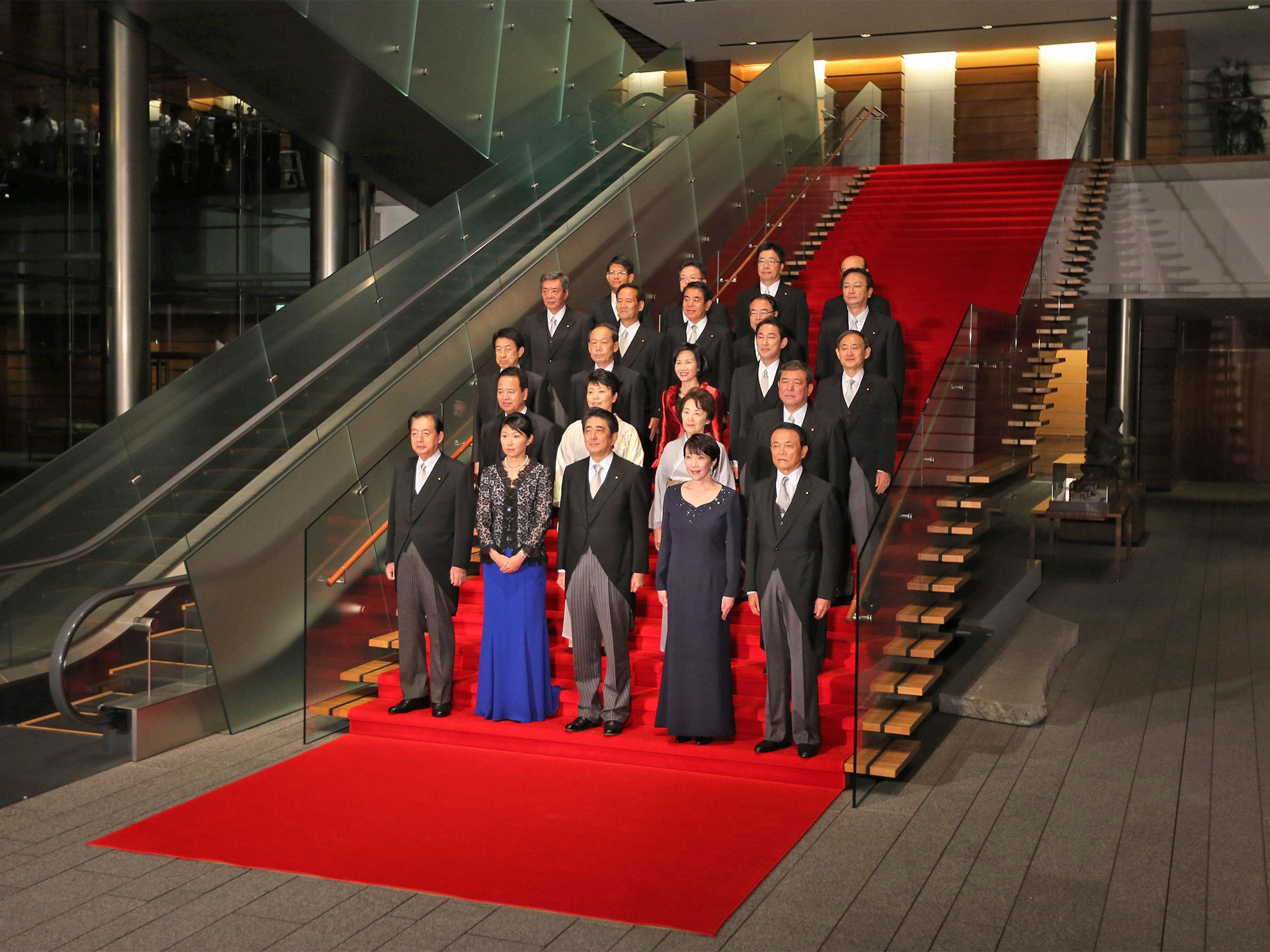Japan’s PM Shinzo Abe embraces 'womenomics' by putting five women in his cabinet
Mr Abe has set a goal of having women in 30 per cent of leadership positions in both the private and public sectors by 2020

Your support helps us to tell the story
From reproductive rights to climate change to Big Tech, The Independent is on the ground when the story is developing. Whether it's investigating the financials of Elon Musk's pro-Trump PAC or producing our latest documentary, 'The A Word', which shines a light on the American women fighting for reproductive rights, we know how important it is to parse out the facts from the messaging.
At such a critical moment in US history, we need reporters on the ground. Your donation allows us to keep sending journalists to speak to both sides of the story.
The Independent is trusted by Americans across the entire political spectrum. And unlike many other quality news outlets, we choose not to lock Americans out of our reporting and analysis with paywalls. We believe quality journalism should be available to everyone, paid for by those who can afford it.
Your support makes all the difference.Japan’s Prime Minister picked five women for his cabinet on Wednesday, matching the past record and sending the strongest message yet about his determination to change deep-seated views on gender and revive the economy by getting women on board as workers and leaders.
Japan has a vast pool of talented, well-educated women, but they are far under-represented in positions of power in government and corporations. Women make up 10 per cent of parliament and just 3.9 per cent of board members of listed Japanese companies, compared with 12 per cent at US corporations and 18 per cent in France.
Women in Japan have long complained about the obstacles to getting taken seriously at work, receiving equal pay for equal work, and finding childcare or helpful spouses.
Prime Minister Shinzo Abe reiterated that a key part of his “Abenomics” growth strategy is making greater use of women and promoting them to leadership posts – a campaign dubbed “womenomics”, a term he has embraced. Mr Abe has set a goal of having women in 30 per cent of leadership positions in both the private and public sectors by 2020.
“Realising a society where women can shine is a challenge our cabinet has undertaken,” he said during a news conference. “I look forward to the wind of change these women will bring.”
Having five women in the 18-member cabinet is extremely rare for Japan. It matches the highest number set in 2001 under Prime Minister Junichiro Koizumi. Mr Abe’s previous cabinet, dissolved earlier in the day, had two female ministers. Expanding the presence of women in a place as high-profile as the cabinet is seen as a step toward sexual equality.
Yuko Obuchi, daughter of a former prime minister, was named trade and economy minister, probably the most prominent post, and Midori Matsushima was appointed justice minister.
AP
Join our commenting forum
Join thought-provoking conversations, follow other Independent readers and see their replies
Comments